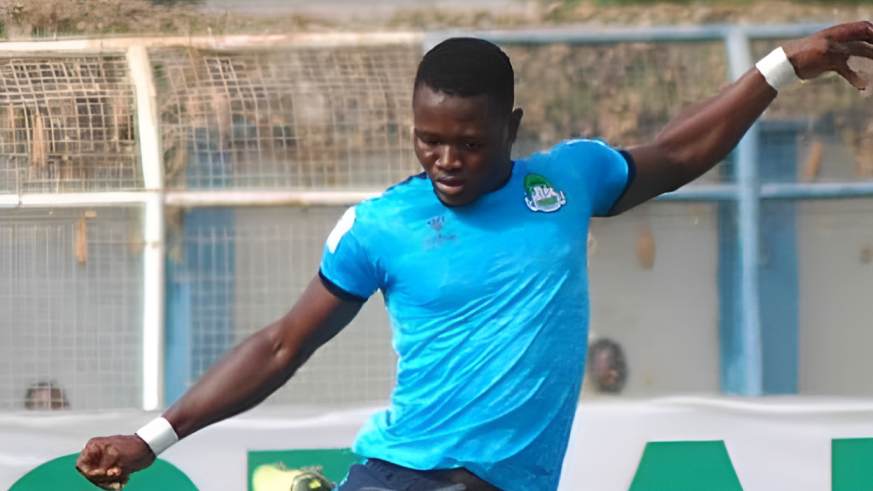A Nigerian court has ruled that leading football authorities were negligent in the death of footballer Martins Chineme, marking a historic moment for sports law in the country.
The decision, praised by the global players' union Fifpro as a "landmark case," comes five years after the 25-year-old collapsed while playing for Nasarawa United in a top-flight match.
As reported by the BBC, the National Industrial Court of Nigeria (NICN) found the club, the Nigeria Premier Football League (NPFL) board, the Nigeria Football Federation (NFF), and match commissioner Christian Mbah all guilty of failing in their duty of care to Chineme.
The court awarded damages to the player's family, setting a legal precedent under common law that could impact sports regulations beyond Nigeria.
"It's a proper landmark case in football. I have not seen another ruling where a federation is held liable to the extent that they are in this case. This is rare," said Loic Alves, Fifpro's senior legal counsel
Despite the ruling, none of the responsible bodies have made any public comments.
The NICN, which handles employment and workplace-related civil matters, emphasized that the ruling serves as a warning to federations, clubs, and leagues everywhere about the importance of enforcing safety regulations.
"We're hopeful that this ruling will serve not just in Nigeria, but will also cross borders and force federations, leagues, and clubs to reflect on their regulations and obligations," Alves said.
"It works as a strong reminder that a lack of enforcement of your regulations can lead to real-life consequences - and these consequences can be terrible."
Chineme's family expressed a deep sense of relief and joy after years of pursuing justice.
"It was an emotion one can't really express," said his brother, Michael Chineme.
"It has been a long journey in pursuit of justice. I want to dedicate the victory to those who feel all hope is gone."
Serious Failures in Care
Chineme’s death exposed major failures at Lafia Township Stadium, where the match took place.
There was no functioning ambulance, no working defibrillator, poor pitchside treatment, and a club doctor who lacked the required qualifications.
Even more troubling, Chineme had not undergone the mandatory pre-season medical screening, which includes an echocardiogram critical for detecting heart conditions.
The court found Nasarawa United had also neglected to provide insurance coverage for their players, describing their conduct as "reprehensible."
The NICN ruled that the club, league, federation, and match commissioner all owed Chineme a duty of care.
"What I find interesting in this judgment is that the duty of care is not only on the club," said Alves. "I find this extended application of a classic labour law principle to be very, very positive for all players."
Tosin Akinyemi, one of the family’s lawyers, said the judgment would change how football operations are handled in Nigeria.
"As regards the operations of the NFF and the league body, knowing that a civil court can hold them responsible going forward is going to make a real difference," he said.
"And if they still don't want to change, this is going to encourage other parties going forward."
A Fight Against the Odds
Initially, Chineme’s family hesitated to go to court, worried about challenging powerful institutions.
"We never wanted to go to court, because most people will tell you, 'You can't challenge the guys in authority - they are so powerful'", Michael said.
"I felt confident and said, '"We can't continue like this in this country - justice must be done'."
The case dragged on for over four years after being filed in December 2020.
Nasarawa United tried several times to derail the case with objections and applications, which Akinyemi described as lacking merit.
The club’s claim that the court had no jurisdiction was dismissed, and their defense was labeled "manifestly frivolous and gold-digging."
Meanwhile, the LMC and the NFF stayed silent throughout the proceedings, refusing to engage.
According to Alves, this is a common pattern when facing legal action.
"Federations tend to believe they can enjoy some sort of impunity," he said.
"What is remarkable in this case is that a state court is reminding them that they are as equal in front of the law as any other body."
Despite being fined over $15,000 by the NFF in 2020 for various breaches, Nasarawa United denied any wrongdoing.
Claims that Chineme had valid insurance and underwent proper medical tests fell apart under cross-examination, revealing the tests only covered diseases like HIV/AIDS, malaria, and typhoid, not cardiac issues.
In his judgment, Justice Haastrup said the club "threw every caution to the wind" when certifying Chineme fit to play.
Legacy for the Future
Despite being approached for testimony, many local players declined, fearing repercussions for their careers.
"I begged three players to testify," Michael said.
"But they were afraid of their career - that if they came, they might be threatened, they might lose their job."
Now, those same players are among those celebrating the verdict.
"I've been approached by some players and by his friends that still play," said Michael.
"They were like: 'Thank you for this, we never knew this was still going on, we never knew you were this resilient.'"
Although the damages awarded will barely cover the legal fees, Michael's commitment to his brother's legacy remains strong.
Through the Chineme Martins Football Foundation, founded in 2022, he hopes to help players facing similar issues by providing legal support.
"I set up Chineme Martins Football Foundation to see the little way it can help those who have been suffering these kinds of issues," he said.

